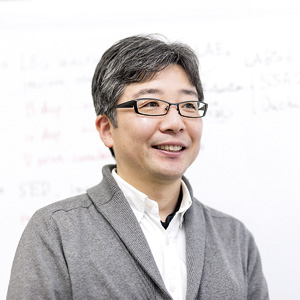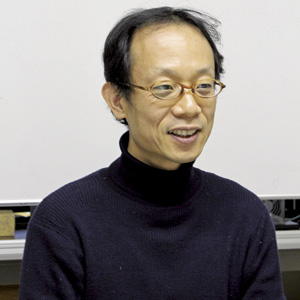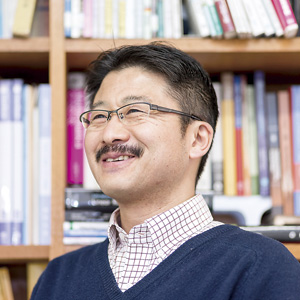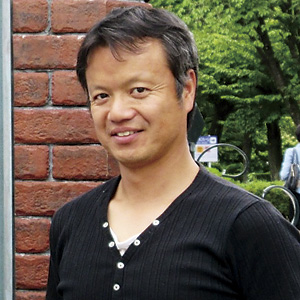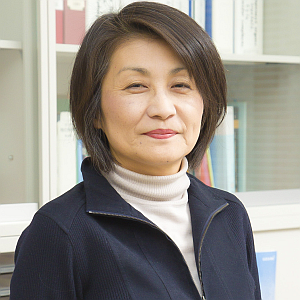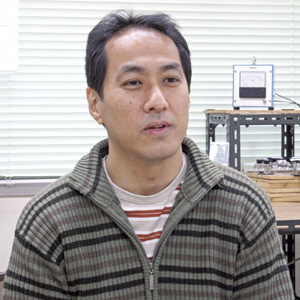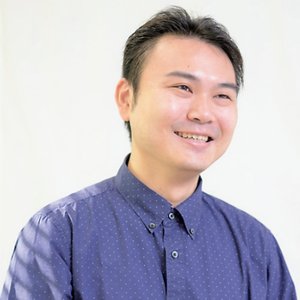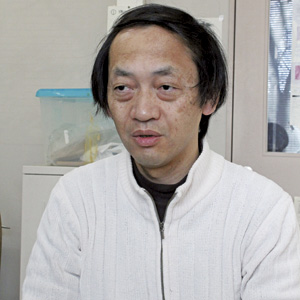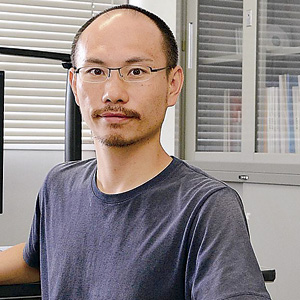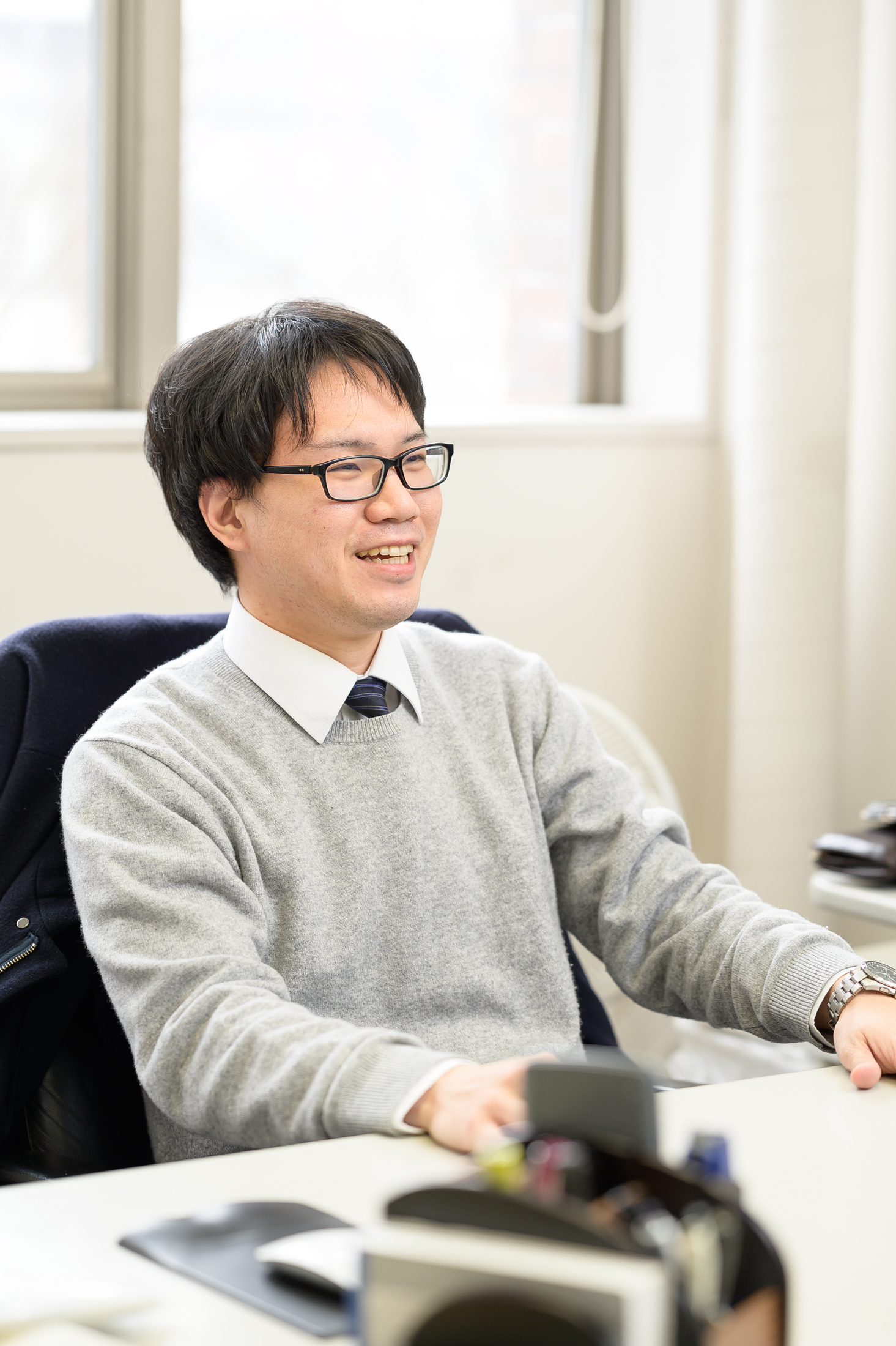Mathematical Science and Physics
To develop people resources who can contribute to new development of mathematical and physical sciences, creation of new industries, and education.
What you can learn and research in this course?
We provide a variety of study courses for the acquisition of a thinking sense and skills of mathematics and physics. Students will search for rules of nature, and deepen their comprehension of physics and mathematical science through their own experiences. In the physical science field, we offer the lecture of condensed matter physics, which mainly searches for new characteristics and new substances, and modern physics, which seeks the origins of matter and the universe. And in the field of mathematical science, we aim to unravel the complexities of physical phenomena and social phenomena through a mathematical approach, such as mathematical statistics, complex systems science, and game theory. Besides, students may take classes in the Materials Science and Engineering course in the common education frame. In addition to basic studies, students will acquire industrial and applied materials science as well as a broad range of knowledge and skills.
Field of Physical Sciences
Students study subjects such as electromagnetics, quantum physics, solid-state physics in order to cultivate basic physics skills, and condensed matter physics and basic physics to acquire application skills in physics. In condensed matter physics we study superconductivity, magnetism, and nanocharacteristics, and in basic physics we study the elementary particles, nuclei, and the universe and their observation methods.
Field of Mathematical Sciences
In order to develop the fundamentals of mathematical science, students study subjects such as applied differential equations, applied probability statistics, and numerical analysis. They also study subjects such as complex systems science and game theory in order to acquire application skills in mathematical science.
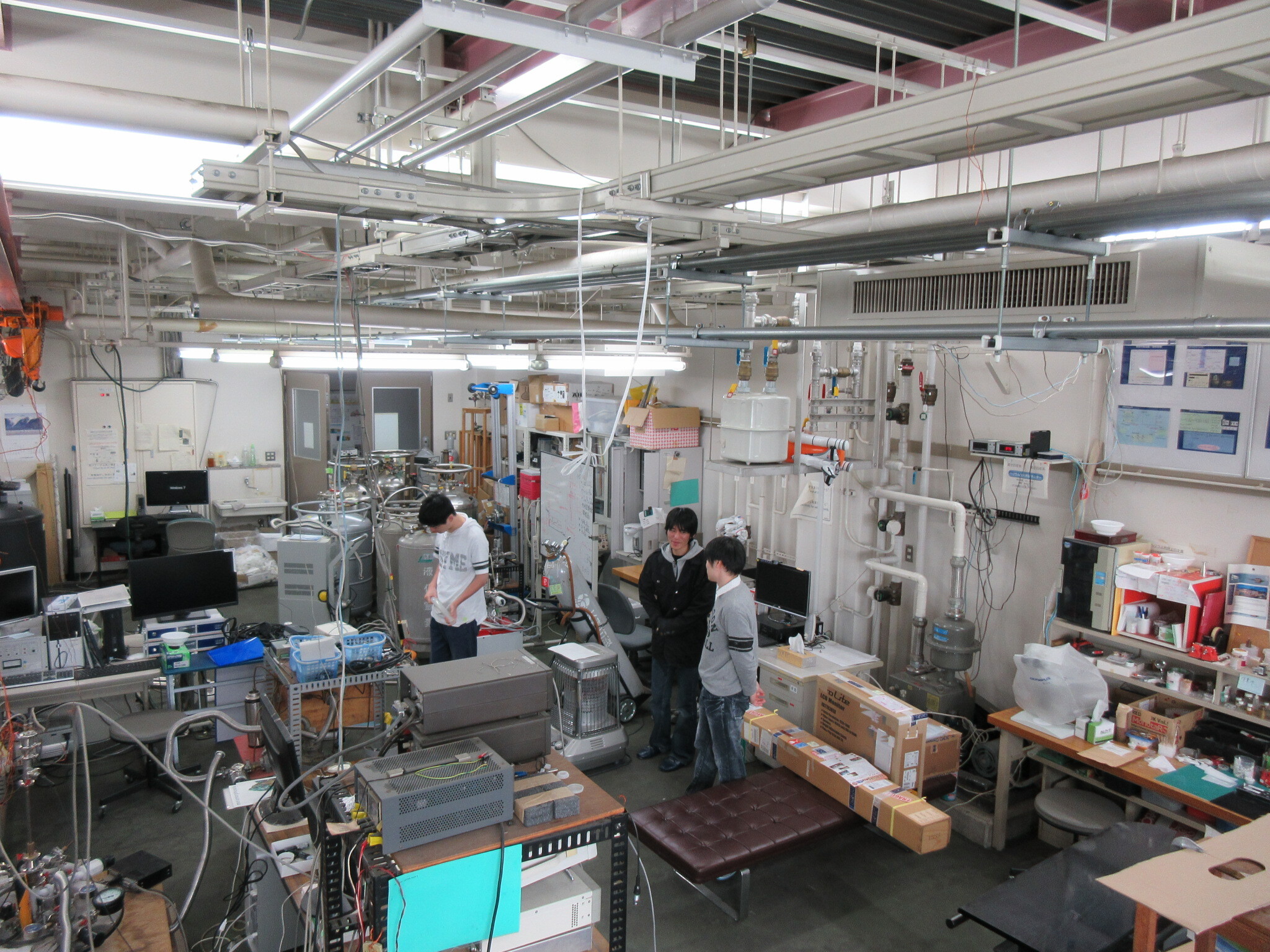
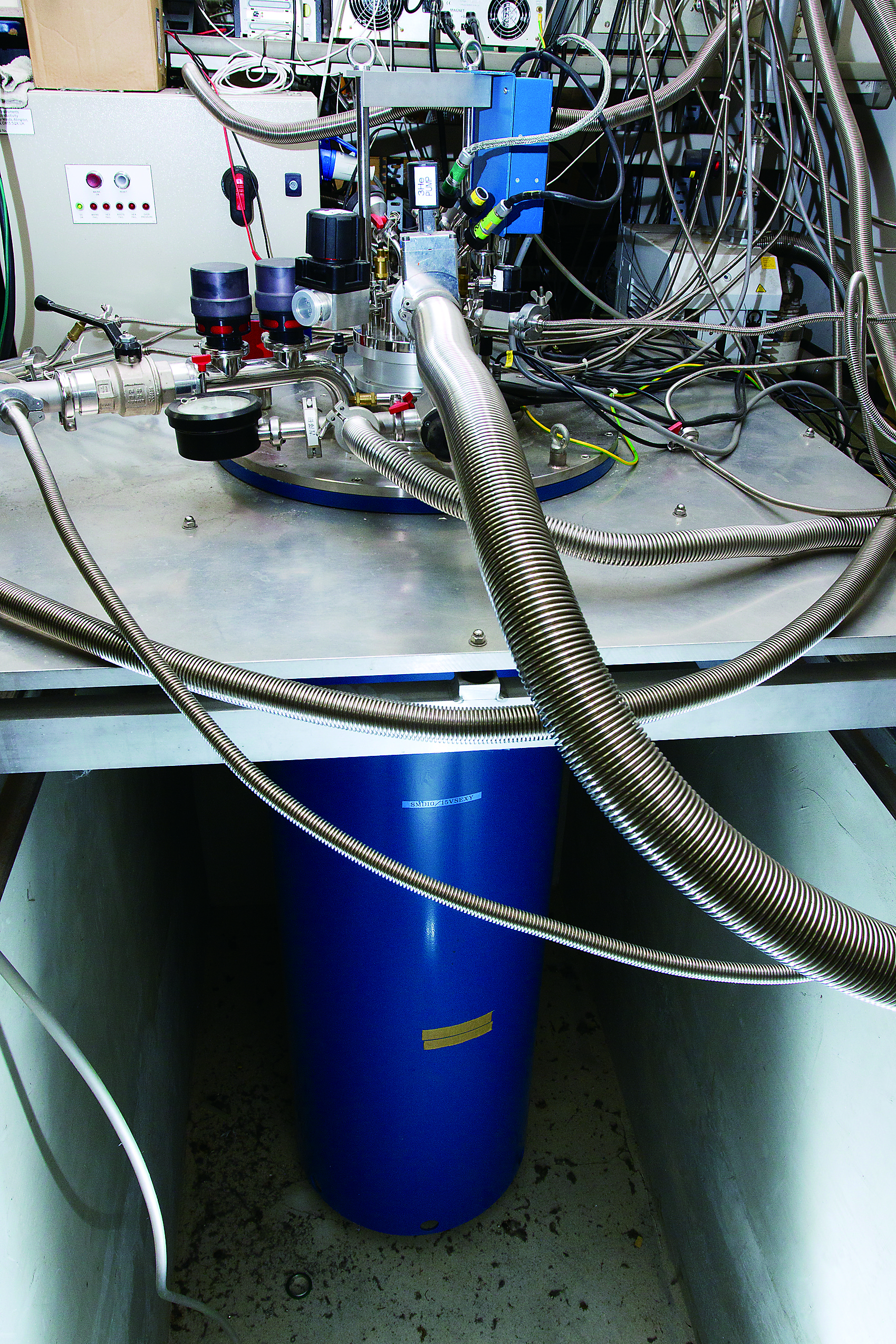
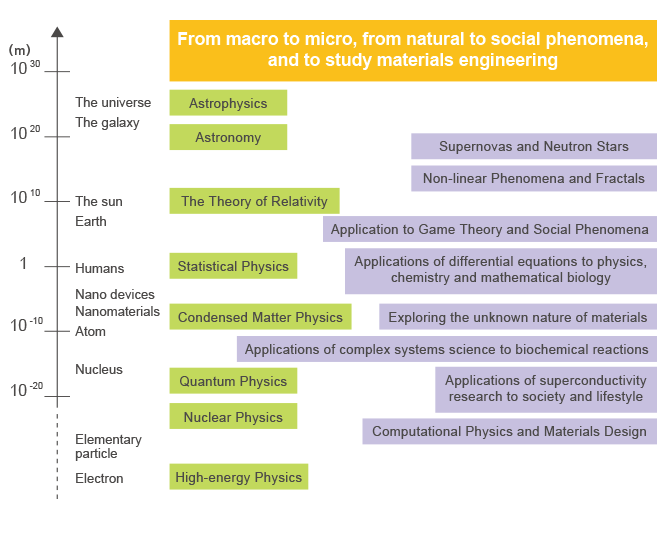
How our research can be applied to society?
The research in the Mathematical Science and Physics course is divided into two main fields: physical sciences and mathematical sciences. Research in the physical sciences is applied to the realization of a sustainable society and to the elucidation of the mechanism of the creation of the universe. Research in the mathematical sciences is used to predict unknown phenomena and to design new industrial products.
What this course looks for in students?
In the Mathematical Science and Physics course, students develop the ability to think deeply and logically as they explore the mechanisms of the natural world, from the properties of matter to the structure of the universe, and use the knowledge and ideas they have learned to contribute to society. To this end, this course seeks students with the following abilities and qualities.
- Basic academic skills in mathematics, physics, chemistry, and English that are appropriate for studying mathematical and physical sciences.
- High motivation to study in the fields of mathematical, physical, and material sciences
- A strong interest in the mathematical and physical sciences and a desire to address the problems facing humanity through the development of natural science
- Willingness to take on new challenges and to play an active role both locally and globally
What kind of human resource will this course develop?
Our goal is to develop people who can contribute to the development of science and technology in the mathematical and physical sciences, the creation of new industries, education, and the realization of a sustainable society by using their broad knowledge and high expertise in the mathematical and physical sciences.
What kind of career path is expected after graduation?
Thinking skills and sense related to mathematical and physical science are indispensable problem-solving skills in the diversity and complexity of modern society. Students will play an active role in a broad range of fields as researchers and developers. Many are also expected to go on to graduate school, where they will be able to learn about specialized fields in even greater depth.
- Research and educational organizations such as universities, high schools and national research institutes
- Electricity and electronics
- Metallic materials
- SE
- Financial services
- Information services
- Civil service in the government, such as prefectural and municipal offices
- Going on to graduate school, etc.
Curriculum
| First year | Second year | Third year | Fourth year | |
|---|---|---|---|---|
| Specialized Basic Courses |
●Basic Mathematics ●Calculus I ●Calculus Ⅱ ●Linear Algebra ●Differential Equations ●Physics ●Chemistry I ●Chemistry Ⅱ ○Biology |
●Vector Analysis ●Fourier Analysis ●Physics Laboratory ●Chemistry Laboratory ○Probability and Statistics ○Earth Science ◎Complex Analysis |
||
| Mathematical Science and Physics Course Subjects |
○Applied Probability and Statistics ○Geometry Ⅰ ○Geometry Ⅱ ◎Applied Differential Equations |
●Exercises in Physical Mathematics I ●Exercises in Physical Mathematics Ⅱ ○Particle Measurement ○Contemporary Physics I ○Contemporary Physics Ⅱ ○Complex Systems ○Game Theory ○Applied Analysis ◎Quantum Physics Ⅱ |
●Graduation Research | |
| Common Courses within Science |
●Basic Exercises in Physics, Materials Science and Engineering ●Design and Drawing ●Thermodynamics |
●English for Technology Ⅰ ●Microstructure of Materials Ⅰ ●Electricity and Magnetism Ⅰ ●Quantum Physics Ⅰ ●Statistical Physics ○Circuit Theory ○Optics ◎Electricity and Magnetism Ⅱ |
●English for Technology Ⅱ ●Numerical Analysis ●Computer Programming ●Physics, Materials Science and Engineering Laboratory Ⅰ ●Physics, Materials Science and Engineering Laboratory Ⅱ ●Solid State Physics ○Selected Topics in Physics, Materials Science and Engineering Ⅰ ○Selected Topics in Physics, Materials Science and Engineering Ⅱ ○Industry Visits ○Electronic Material Physics ○Analysis for Materials Research ○Dielectric Materials Science ○Semiconductor Science and Engineering ○Organic Materials ○Magnetic Science and Engineering ○Science and Engineering of Superconductivity ○Nano Science and Engineering |
●English Seminar for Science Technology ●Advanced Study in Physics, Materials Science and Engineering |
| Common Courses within the Department | ●Introduction to Soft Path Science and Engineering |
○Ethics for Engineers |
||
|
○Nuclear Engineering ○Quality Control and Industrial Management Plan ○Introduction to Intellectual Property ○Selected Topics in Patent Law |
||||
| ○Internships | ||||
| ○Overseas Training in English for Science and Engineering | ||||
●Compulsory Subjects ○Elective Subjects ◎Elective and Compulsory Subjects
Interviews with Students
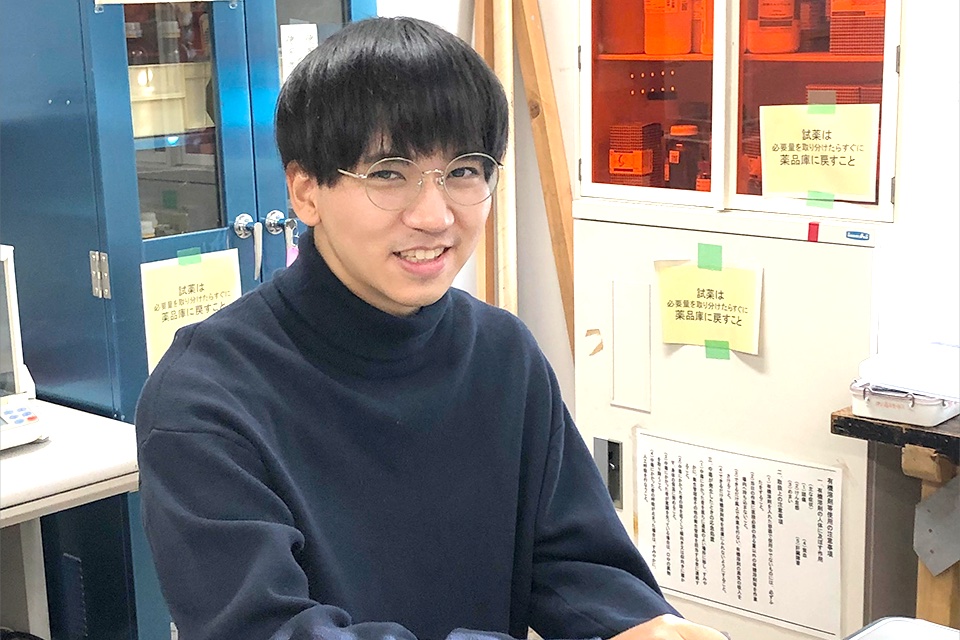
My goal is to become a researcher who enriches people's lives.
MIZUSHIMA Yuto
[from Shinkawa High School, Sapporo City]
What I felt most strongly upon entering university was the difference in the amount of required courses from high school. Students at university may choose lectures in fields they want to learn about and are interested in. I think it is a place where one can be more proactive about what one “wants to know” and “wants to learn”. I felt that the accumulation of such learning led to both the selection of my graduation research theme in my fourth year and a guideline for thinking about my future career path.
Currently, I am studying properties of materials in Matsukawa Laboratory. There are three main themes: superconductivity, photocatalysis, and multiferroics. My research is in the field of superconductivity, where I am working to elucidate the superconducting properties of a material called Pr2Ba4Cu7O15-δ(Pr247), with the goal of synthesizing a material that exhibits superconductivity at higher temperatures. After graduation, I would like to enter graduate school and contribute to the development of the research field of superconductivity by further acquiring knowledge and skills in this specialized field. In graduate school, I would like to learn more about the transport properties of materials through research on superconductivity, and in the future, I would like to work for a company in the semiconductor industry to enrich people's lives through research and development.



